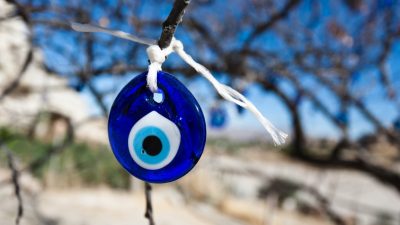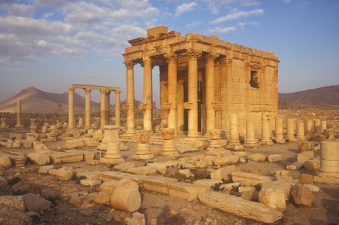 We speak with Alisa Ananbeh, a student leader on the environment, on going green in Jordan.
We speak with Alisa Ananbeh, a student leader on the environment, on going green in Jordan.
Around six months ago, Alisa Ananbeh took part in a US funded five-week programme to help young people from the Middle East deal with environmental problems. Just under twenty students from Gaza, Jordan and the West Bank travelled to America to learn about the US environmental movement and ways to build leadership on the issue in their own countries. The diverse group arrived at the end of July 2011 and spent time in Oahu, San Francisco, Boulder Colorado and Washington DC. I spoke to Alisa who lives in Jordan about what motivated her to take part in the programme and how she hopes to help Jordan deal its own unique environmental problems.
GREEN PROPHET: Tell us a little a bit about yourself –where you are from, your interests and background.
ALISA: I live in Jordan and have a Jordanian father and a Ukrainian mother. My life was always somewhere in between those countries. I studied Management Information Systems for my Bachelor degree. Books, art and culture are my childhood passions that stayed till my adulthood. My other passion is to be environmentally concerned, through small everyday things in life and to raise the awareness as much as possible. I also believe in social corporate responsibility and its benefits for the company and the society. I am currently working for an IT company and at the same time volunteering with the Jordan Green Building Council.
What was the single most important thing you learnt during the Study of the US Institute for Student Leaders on Global Environmental Issues (SUSI) programme?
Definitely team work! People that participated with me gave me so much knowledge, positive energy and showed how by uniting with each other we empower our actions. During SUSI we learned how to trust and listen to each other to achieve results. For example during our first days, we went on a canoe trip, where we needed team work and understanding of the almighty waves to stop us flipping over. Those trips, activities and sub-activities also taught us how to multitask and see opportunities from different angles. Sometimes it was crazy, but we still maintained the element of fun and constant learning!
What kind of things did you learn that you think will apply to environmental problems in the Middle East?
Jordan is a rapidly growing and developing country where the ICT industry has grown by 25%. By 2011, the number of workers in the ICT industry will increase from 16,000 to 35,000. This is significant since by reaching the business sector and promoting the green sustainable solutions, you could positively change the impact on the environment. Through simple habits – and with less cost than most people would tend to believe – everyday life could be changed in undemanding way and decrease the damage on the environment.
Starting with reducing printing or printing on both side of paper, recycling and introducing more plants to the office, positive changes could be made. In addition new developments such as cloud computing can decrease usage of servers and reduce the carbon footprint of the company. A new office could be equipped with second-hand furniture and existing offices can change lamps and educate their workers about environmental awareness.
 Was it encouraging to meet others from the Mideast who cared about the environment in the same way you do?
Was it encouraging to meet others from the Mideast who cared about the environment in the same way you do?
Yes, it even helped me to form lifelong friendships! Now I know where I can find help with my environmental plans. During the program, we saw that a small group of like-minded individuals can accomplish a lot in a limited amount of time. And even though not everyone was from Jordan (some of us came from Palestine) we still organize Skype meetings to discuss our plans and ask for some advice.
What are the main environmental issue that you think must be tackled urgently in Jordan?
Jordan’s main problem is the lack of acceptance of our environmental issues. By educating the youth and demonstrating positive ways to protect the environment, I hope we can have a long-term impact. Therefore I believe it’s important to raise the awareness amongst people not only in the cities but in the villages too. That way, other issues such as lack of water, waste management and environmental pollutions will be jointly solved by Jordanians.
Images via Alisa Ananbeh
For more information on going green in Jordan:
Jordan Railway Plans On The Right Track
Amman’s New Mega-Mall is Antithesis of Sustainable Development
Solutions to Jordan’s Energy Crisis Must Be Sustainable




Whatever. The basic problem is the same everywhere around the World. Too many people producing too much pollution and dumping it because money is too important to them. Too much of everything turns everything bad.
Are they going to stop the dumping of garbage into the Mediterranean Sea? Do any of them understand it is the growing population and its growing economy that is causing the damage to the environment and that it will get worse no matter what else they do unless it is stopped?
Jordan doesn’t border the Med Sea. Maybe you are thinking about the Red Sea?